Part 43: The Brothers' War
Chapter 11 – The Brothers’ War – 1580 to 1590As the sixteenth century slowly came to an end, the Sultanate of Al Andalus was not in good shape. A humiliating defeat had been suffered against the French and Moroccans, but even this was forgotten as half of Iberia rose up in revolt, arming themselves and marching against the weakened Sultan and his mother.

Measures to counter these revolts had to be taken quickly, so at the command of the queen mother Fatima, a large loan was taken out from the merchant guilds of Qadis, primarily used to rebuild the shattered army.

Once reinforced with Italian mercenaries, the New Mubazirun began the march northeast, where the first of the rebels were engaged. The Aragonese separatists chiefly consisted of peasants armed with sickles and swords, so it didn’t take much to gun them down and reassert the Sultan’s authority in Zaragoza.


Posing a much bigger problem was the rebellion in the west, however, led by Tariq Jizrunid, one of Sultan Husayn’s half-brothers. The New Mubazirun marched towards the rebels and attacked from behind, whilst they were attempting to capture the fortress of al-Adna, but they were all well-trained and armed.

The loyalists were led by al-Mundir, a young general who'd served under the famous Amir Ali Ahmed. He was no match for his predecessor, however, and the rebel leader Tariq managed to deal the New Mubazirun a decisive defeat under the scorching summer sun of al-Adna.


Al-Mundir fell back with heavy losses, the final body count amounting to almost twenty-five thousand dead men, the majority of which were loyalists. To make matters worse, Tariq Jizrunid immediately turned around and ordered an assault on al-Adna, capturing the fortress before nightfall.

The New Mubazirun fell back to Tulaytullah, where they wintered, giving the mercenary troops time to rest and recover. But it wasn't much longer before Sultana Fatima commanded al-Mundir to take the fight back to the rebels, and so he marched northward again, engaging them as just as they lay siege to León.

Again, however, Tariq Jizrunid proved himself al-Mundir’s superior in tactics. Another closely-fought battle ended with the Mubazirun in full-blown retreat, fleeing south with all the haste they could muster and leaving another mountain of dead behind them.

Al-Mundir was fast running out of men, money and options. With his numbers inferior to the rebels’, he eventually decided to take back al-Adna before launching any further offensives, and captured the weakly-fortified castle after a few weeks of siege.


The Sultan’s mother, however, wasn’t exactly pleased upon hearing the news. She knew that every day that passed with Tariq Jizrunid still alive and breathing, her son’s authority as the legal Sultan withered, along with her own.
So once again she ordered al-Mundir to crush the rebels in open battle, threatening him with a colourful array of punishments should he fail. So the general did as commanded, but to no avail, with his men shattering after less than a day of fighting, throwing their weapons and yielding the moment the fighting turned against them.

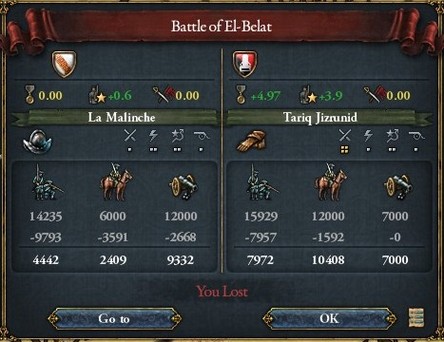
Sultana Fatima didn’t have the time to follow through on her threats, because she and the rest of the royal family were forced to flee Tulaytullah as the rebel army descended on it, intent on following up their victory by capturing the capital.
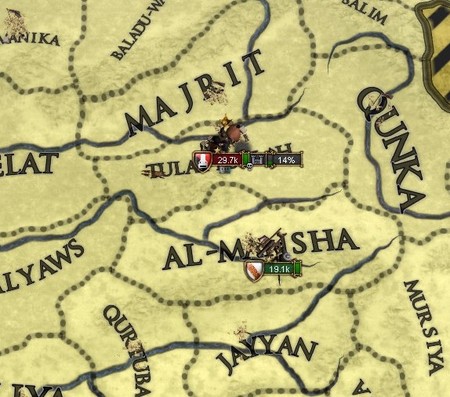
The Sultana, once safe in a southern haven, sent riders to the Majlis giving them full authority to do whatever it took to overwhelm the rebels. The assembly made full use of this newfound authority, ordering that more money be minted so as to pay their mercenaries, who were on the verge of desertion.

Once his army had recovered again, al-Mundir pushed north, and engaged Tariq’s forces below the walls of Tulaytullah. The New Mubazirun were at full strength once more, and their numbers were roughly on par with the rebels', so there could be no excuses this time...
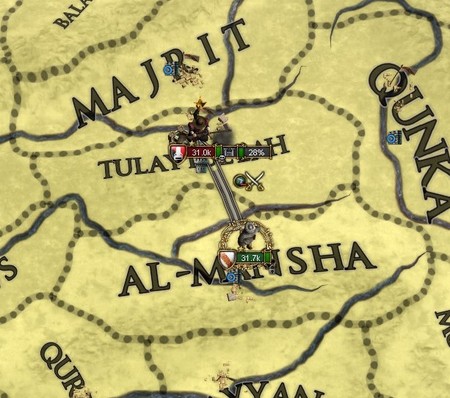
But again, the rebels came out on top. The battle was fierce and bloody, but Tariq Jizrunid was able to keep his lines together and breach the enemy’s, cleaving the loyalist army in two and destroying what was left.

Al-Mundir barely managed to escape the battlefield with his life, and surrounded with the remnants of his guard, he fled south yet again. Tariq Jizrunid, on the other hand, triumphantly marched into Tulaytullah as its conqueror.
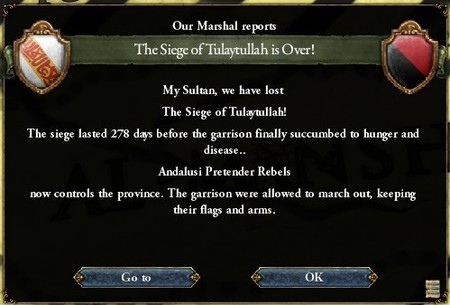
Whilst Tariq crowned himself as the new Sultan of Al Andalus, his half-brother Husayn was still in hiding somewhere in the south. Even with his kingdom on the verge of collapse, he didn’t have the nerve or courage to take charge, instead drinking himself senseless in some secret haven.
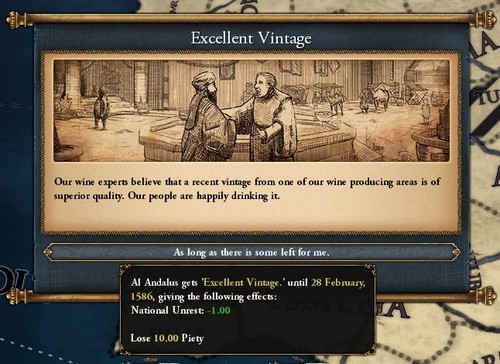
For many, this would have been the end of the civil war, but Sultana Fatima was not one to give up, even when she’d already lost.
On her orders, the Majlis took out massive loans from wherever they could get them, signing contracts with merchants from Provence to Egypt. She refused to admit defeat, even if it bankrupted what was left of Al Andalus.
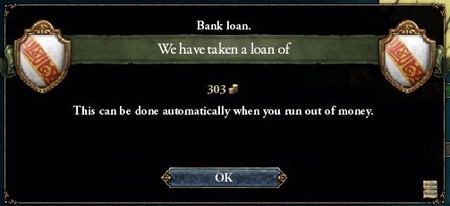
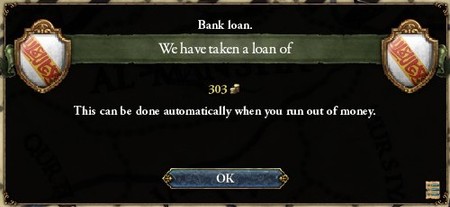
And for fourth time, a new army of Berber mercenaries and Andalusi levies was built. Al-Mundir defected to the enemy, so this army was commanded by a powerful loyalist - Abdul Razzaq - who marched north at the head of 30,000 soldiers. This was everything the sultanate had left, it had to be enough, or they were all lost.
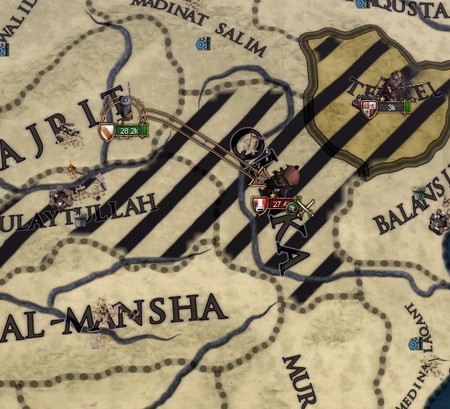
The battle was said to be the bloodiest and deadliest of all the engagements in the Brothers’ War, with 60,000 men clashing in the fields outside Tulaytullah, shooting and slashing and stabbing one another to death. The dead formed mountains and smoke blotted out the sun, but neither side could afford to retreat. Up until the very last moment, no one could’ve guessed who would come out the victor, or who would still be Sultan at day’s end.
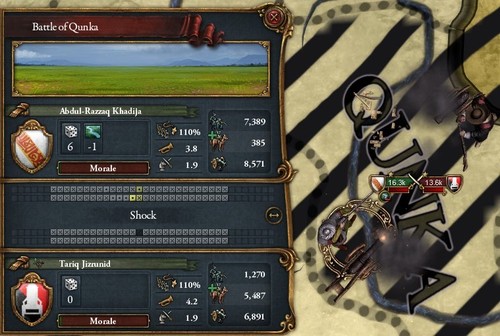
But all things come to an end, and when the battle did, it was the rebels who broke and fled.
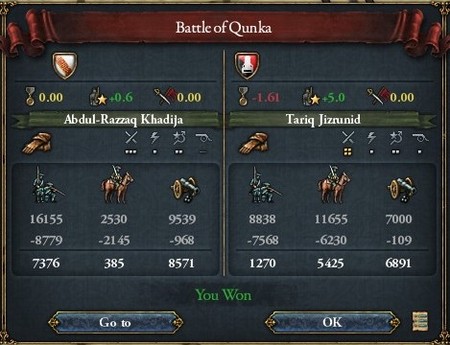
Abdul-Razzaq didn’t stop to rest on his laurels, immediately pursuing what was left of the rebels and pinning them down again at Mursiya, where they were finally crushed after a valiant last stand.
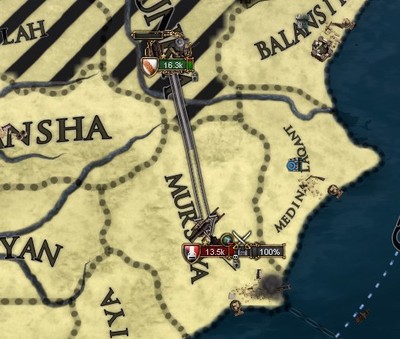
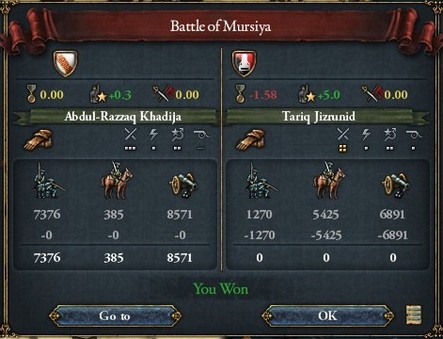
Tariq Jizrunid himself was never found, he may have been amongst the tens of thousands that died that day, he may have fled and lived the rest of his life in anonymity. Whichever it was, his defeat finally brought the civil war to an end, almost eight years of bloodshed and devastation.
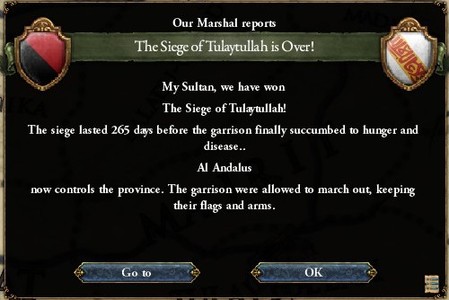
Once the last rebel strongholds were recaptured, Sultan Husayn and his mother came out of hiding. Rather than go north and back to Tulaytullah, however, the royal family and the court went south instead, back to Qadis.
Once there, the Sultan gave a weary but long-awaited address to the Majlis and announced the end of the war, adding that the country would be governed from the southern capital from that day onward. Not very surprising either, considering the fact the Tulaytullah had been besieged and lost countless times over the past two decades.
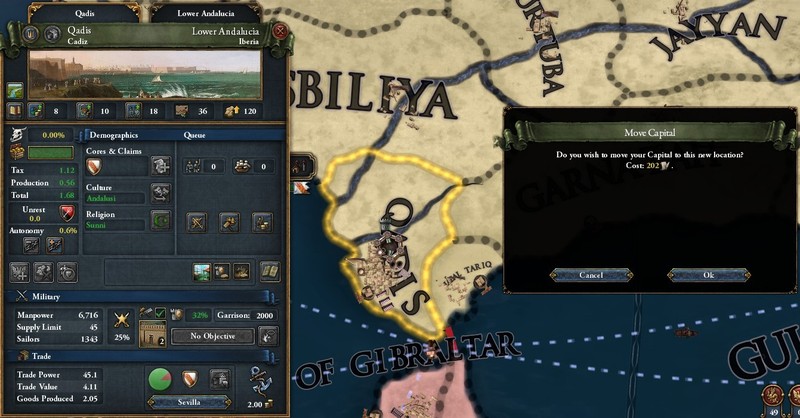
For his decisive victory, Abdul-Razzaq was granted vast estates in Qunka for his deeds during the war, turning him into an Amir, a high-ranking lord worthy of a seat on the Majlis.
But once all of these formalities, congratulations and rewards were handed out, there could be no turning away from the damage done to Al Andalus. The sultanate was still steeped in debt, with aggressive neighbours encroaching on its territory and no army to throw them back. It was time for recovery and peace, for loans to be repaid and the army rebuilt, it would be years before the sultanate could stand on its own two feet again.
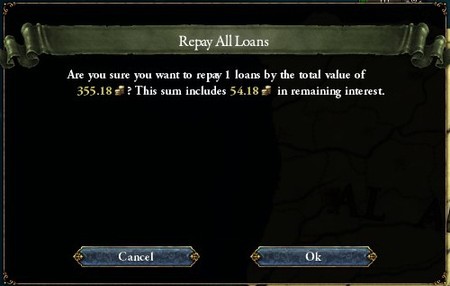
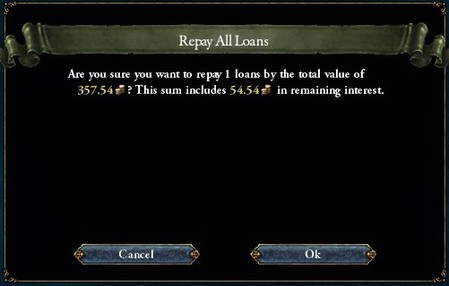
Knowing full well that his Muslim neighbour was weak, the King of France took the opportunity to formally annex Castille, absorbing its lands and proclaiming himself the King of Castille, overlord of all Iberian Christians.
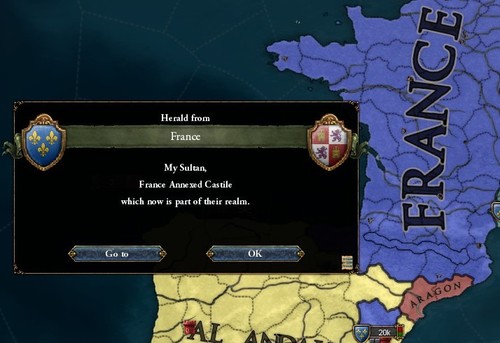
Sultan Husayn and the Majlis could do nothing more than protest, however. If one thing was clear from all the carnage of the past two decades, it was that Al Andalus could no longer face its rivals alone. An alliance network had to be rebuilt, so envoys were sent to revive the pact with the Jizrunid Emirate of Palermo, which had managed to expand after a recent war with Italy.
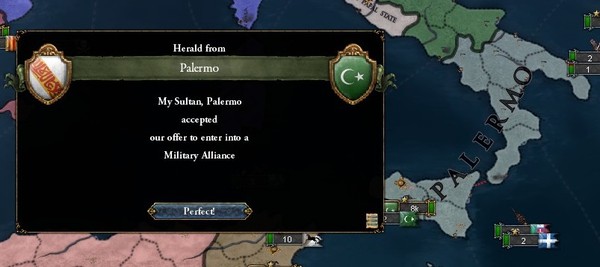
The Majlis’ attention was drawn westward before long, however. Andalusi spies in Marrakesh informed the assembly that Ubaid, the sultan of Morocco, was planning to expand his holdings in the new world again.
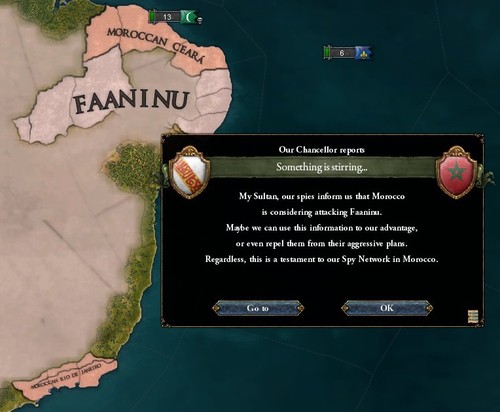
And indeed, a few days later Ubaid delivered a sermon in which he denounced the pagans and heretics of Gharbia, and declared war on Faaninu. The former African colony was conquered within mere weeks, massively adding to Morocco’s overseas holdings.
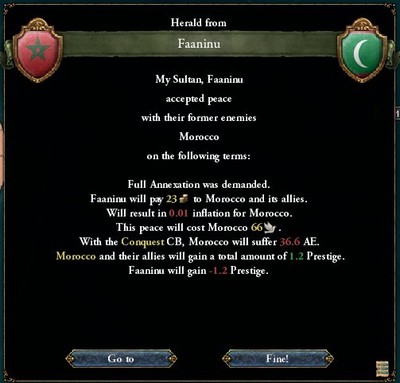
Again, the Majlis couldn’t exactly attack Morocco, despite the provocations. Instead, they decided to invest more resources into expanding their own colonial empire, sending money and settlers to the Muqtas (viceroyalties) and instructing them to do just that.
Before long, the Andalusi colony along the great Mississippi River were growing again, on the verge of becoming self-sustaining.
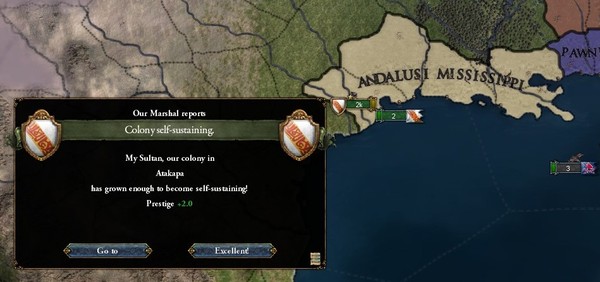
The island of Jamaica was also claimed by Andalusia, turning it into a the sultanate’s principal naval base in the region.
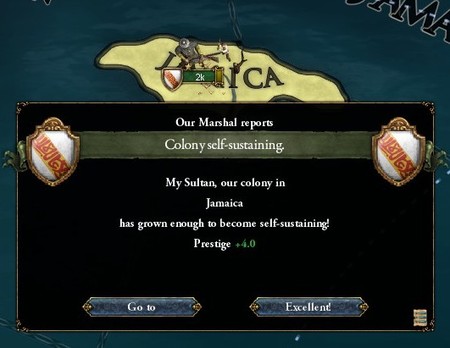
The Majlis still didn’t have what they desired above all else, however – the fabled gold mines of Gharbia. They would have to cast their nets further afield if they were going to find them, so with the help of willing natives, several new settlements were founded further west, neighbouring the vast and powerful Tlapanec Empire.
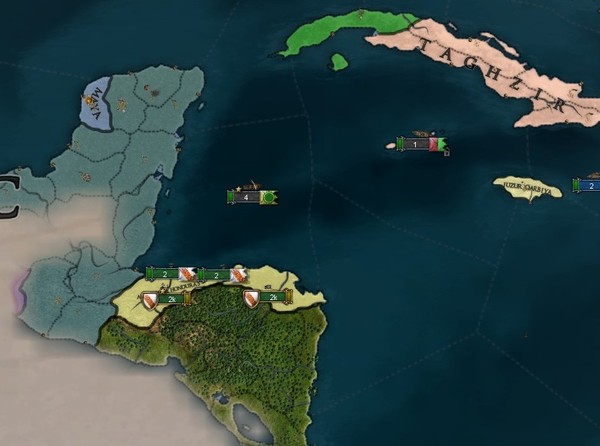
This expansion came at a price, however, as the Majlis came to increasingly rely on their overseas governors. The Muqta of Juzur Qarbiya was growing richer and more powerful by the day, and he slowly began working towards more autonomy, efforts which the Majlis quickly put a halt to.
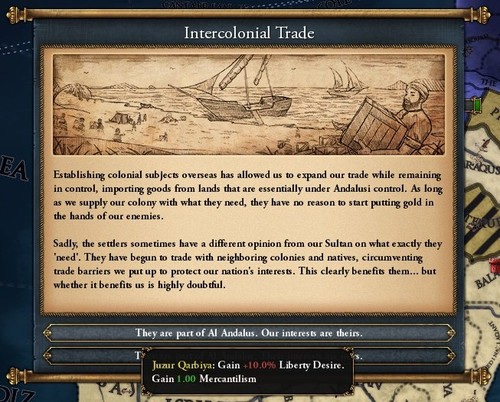
Before tensions between the Muqta and the Majlis could escalate any further, however, the powder keg that was Europe finally exploded into full-blown war...
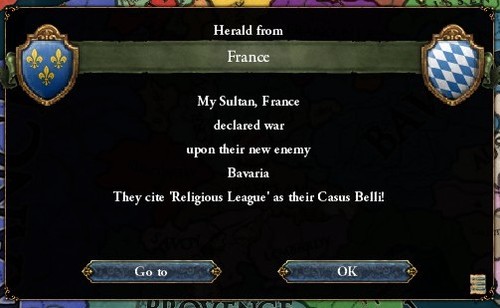
The League War had begun.
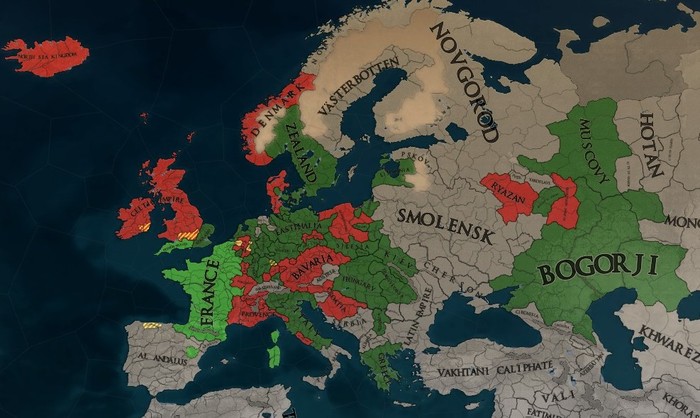
World map:
